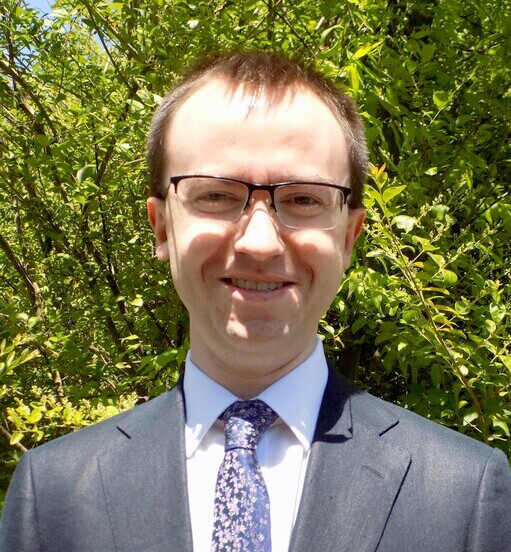Philosophy

Daniel Smith
Assistant Professor of Philosophy
901.678.2535323 Clement Hall, Memphis, TN 38152d.j.smith@memphis.eduI was educated in the US (Ph.D., Penn State) and the UK (M.A., B.A. Warwick), and joined the department in 2018. I have two main areas of research: German idealism (especially Kant and Schelling), and contemporary continental philosophy (especially Foucault). Much of my recent research has been about the history of philosophy in some form: sometimes I practice it, sometimes I theorize about it with the help of continental philosophers, and sometimes I explore its relation to other fields like history and the life sciences. I also have research interests in contemporary political philosophies in a global perspective and critical philosophy of race.
At the moment, I am engaged in the following research projects:
- A book: Evil in Kant and German Idealism. I am convinced that this concept poses a major challenge to philosophy, raising issues not only within ethics, but also for the philosophy of history and systematic metaphysics. Alongside the difficult question of how to account for wrongdoing within the autonomy-based ethical frameworks of German idealism, this research has led me to think about how contemporary thought inherits certain political-theological ideas associated with theodicies, and to explore how philosophers have tried to account for apparently metaphysically ‘negative’ things like evil.
- I am interested in the question of how to do the history of philosophy today in light of well-known criticisms of the traditional canon, as well as theoretical developments in continental philosophy over the past hundred years or so. This has led me to a study of what I call ‘the history of the history of philosophy’, that is, the different approaches that philosophers have taken to writing the history of our discipline. How did we get from ‘lives and opinions’ to Hegel’s organic model, or for that matter to Foucault’s notion of genealogy?
- With dissident Indian philosophers Divya Dwivedi and Shaj Mohan, I have been involved in the launch of Philosophy World Democracy, a multilingual journal based in India with a focus on politically engaged philosophy from global perspectives. I am one of six associate editors, the others being based in Tokyo, Paris, Delhi, Zagreb, and Bogotá. This ongoing collaboration has resulted in some research including an article and special issue on contemporary Kurdish political philosophy, an article engaging with their book Gandhi and Philosophy and some texts on the coronavirus crisis.
- More recently I have been exploring the relationship between philosophy and the life sciences, especially in the two periods that are the main focus of my research: Kant and post-Kantian philosophy, and 20th century French philosophy. I am interested in German idealism’s role in the birth of biology as an autonomous scientific discipline around 1800, especially the parts played by Kant’s essays on race and Schelling’s philosophy of nature. This research will involve a critical re-engagement with Foucault’s account of the shift from natural history to modern biology in The Order of Things, though I also take an interest in this theme in other 20th century French philosophers such as Canguilhem and Deleuze.
Publications
Edited Journal Issues
‘Foucault and Phenomenology’ (with Mary Beth Mader), special issue of The Southern Journal of Philosophy (forthcoming)
‘On the History of Philosophy’, special issue of The Southern Journal of Philosophy 62(S2), 2024.
‘Rethinking Democracy in Kurdistan’, special issue of Philosophy World Democracy 2022.
Articles and Book Chapters
‘Seeds and Stones: Schelling and Reinhold on the Structure of the History of Philosophy’, in The Historical Turn in Early Post-Kantian Philosophy eds. Karin De Boer, Pavel Reichl, and Manuel Tangorra, De Gruyter (forthcoming)
‘ “A Goose Woke up the Sleeping Philosophers”: Foucault on Political Historicism in the English Revolution’, in Genealogy: A Genealogy eds. Verena Erlenbusch-Anderson and Daniele Lorenzini, Columbia University Press (forthcoming)
‘A Kantian Conspiracy in the Writing of the History of Philosophy’, in Questioning ‘Western Philosophy’: Philosophical, Historical, and Historiographical Challenges eds. Lea Cantor and Josh Platzky Miller, Oxford University Press (forthcoming)
‘Kant’s Racism and the Historiography of Philosophy’, Critical Philosophy of Race (forthcoming)
‘Race and Radical Evil: A New Anthropological Interpretation of Kant’s Religion within the Boundaries of Mere Reason’, Philosophers’ Imprint 24(16), 2024
‘On the Historiography of Philosophy and the Formation of the Canon’, Idealistic Studies 54(3), 2024
‘How is an Illusion of Reason Possible? The Division of Nothing in the Critique of Pure Reason’, Kant-Studien 114(3), 2023
‘Philosophy is Dead – Long Live Philosophy!’, Philosophy World Democracy 2022
‘Rethinking Democracy in Kurdistan’, Philosophy World Democracy 2022
‘Ethics without the Will: Vernant, Heidegger, and Agamben on the Relation between Praxis and Phronēsis’, Soundings: An Interdisciplinary Journal 105(1), 2022
‘Nature’s Revenge? On the Coronavirus and Natural Evil’, in Virality of Evil: Philosophy in the Time of a Pandemic ed. Divya Dwivedi, Rowman & Littlefield 2022
‘ “Clinging Stubbornly to the Antithesis of Assumptions”: On the Difference between Hegel’s and Spinoza’s Systems of Philosophy’, Research in Phenomenology 51(3), 2021
‘Gandhi and Philosophy: Hypophysics and the Comparison between Caste and Race’, positions politics: episteme 4
‘On the Viral Event’, European Journal of Psychoanalysis, Coronavirus and Philosophers. A Tribune (Agamben, Benvenuto, Cacciari, Cristi, Kristeva, Mbembe, Smith, Irigaray), 2020
‘An Ethics of Temptation: Schelling’s Contribution to the Freedom Controversy’, European Journal of Philosophy 29(4), 2020
‘What is the Body without Organs? Machine and Organism in Deleuze and Guattari’, Continental Philosophy Review 51(1), 2018
‘ “After you, Sir!”: Substitution in Kant and Levinas’, Journal for the British Society for Phenomenology 48(2), 2017
‘An Event Worthy of the Name, a Name Worthy of the Event’, Journal of Speculative Philosophy 29(3), 2015
‘Foucault on Ethics and Subjectivity: “Care of the Self” and “Aesthetics of Existence” ’, Foucault Studies 19, 2015. Spanish translation by Eugenia Victoria Arria Álvarez and Juan Horacio de Freitas as ‘Foucault sobre ética y subjectividad: ‘cuidado de sí’ y ‘estética de la existencia’, in Dorsal. Revista de Estudios Foucaultianos 2, 2017
